12:49
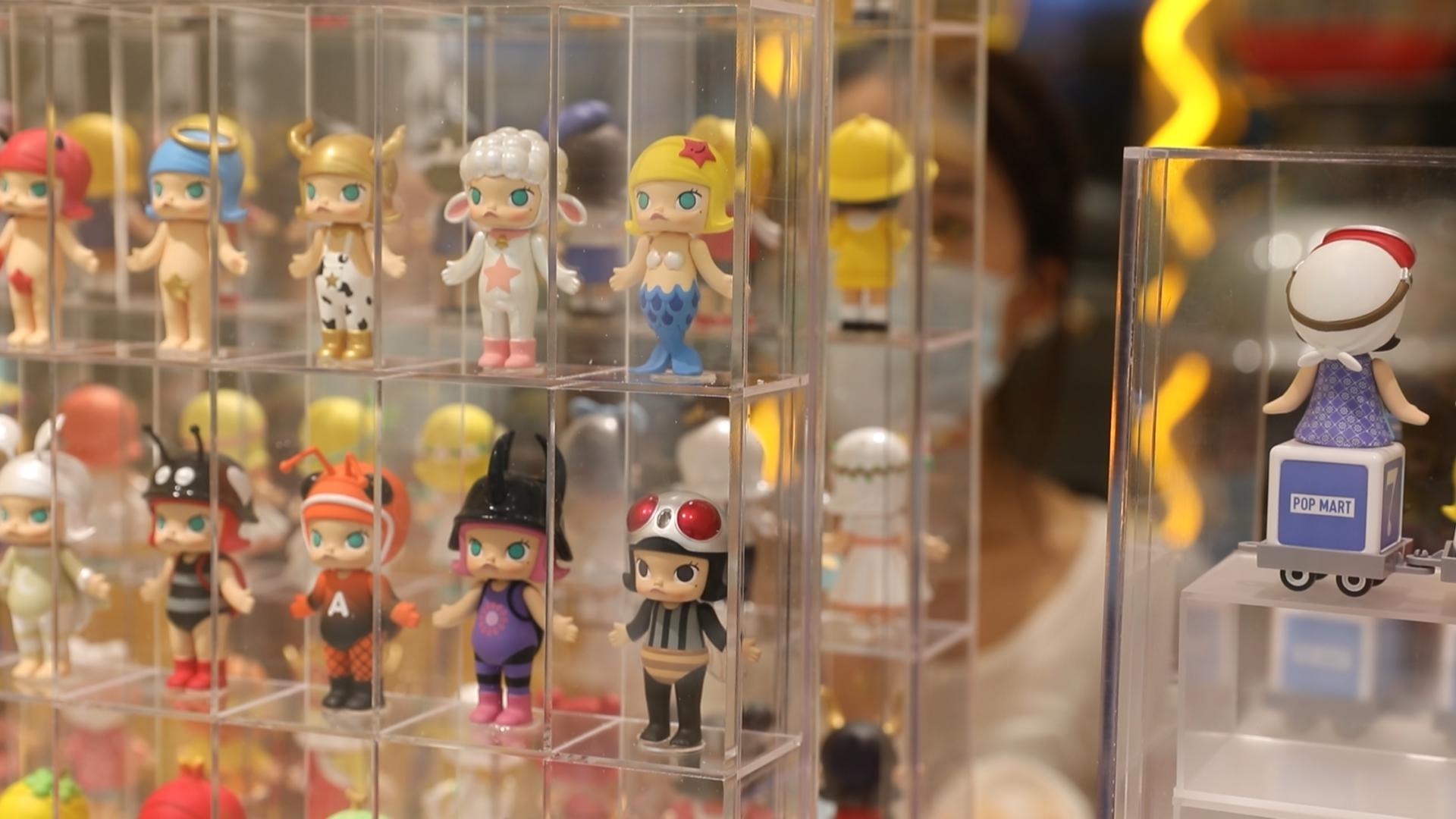
China's designer toy market is getting new attention after Beijing-based creative toymaker POP MART filed for a Hong Kong IPO in June.
Global consulting company Frost & Sullivan estimates the size of China's designer toy retail market stands at 20.7 billion yuan in 2019, while it was 6.3 billion yuan in 2015, which translates to a compound annual growth rate of 34.6 percent.
The market is expected to reach 76.3 billion yuan in 2024 driven by increasing demand in China, the company said. Behind this explosive growing market, is the rising demand for "spiritual consumption" among today's young Chinese consumers.
The great market opportunity is reflected by POP MART, of which the revenue grew tenfold from 2017 to 2019, according to its prospectus. The company was chased by investors, raising 100 million U.S. dollars in its latest round of financing.
It wasn't hard to find a fan of collectible toys. My colleague Jiayi happens to be one. I asked her why are those little dolls addictive.
"Young people are feeling great pressure from work and life, they need to blow off some steam," she said.
Jiayi showed me her collection of Pucky Babies, a mini series designed by a Hong Kong-based artist that she purchased from POP MART stores. Every now and then, she spends a little time playing with them. She loved the toys because they offered her spiritual companionship.
POP MART started to enjoy booming growth 3-4 years ago. Profits stood at 1.56 million yuan and 99.52 million yuan respectively in 2018 and 2019. Last year, it reaped 451 million yuan in profits.

Two consumers at a POP MART Shop in Beijing. /CGTN
Two consumers at a POP MART Shop in Beijing. /CGTN
A strong IP operation is one of the successes of POP MART. Today, POP MART handles 85 IPs, among which self-developed IPs contributed 82.2 percent of the company's total revenue last year.
One of the company's best-selling toy series is "Molly." Last year alone, the popular IP Molly helped POP MART pocket over 456 million yuan in sales revenue.
"With a dedicated IP team, we look for qualified designers and products globally." said Si De, COO of POP MART, "We pick those designers with sustainable creativity, one that can constantly update or expand or re-create existing IPs, to give it new meanings, new life."
POP MART says it aims to become a Disney-style company by owning and commercializing a super intellectual property eco-system. And it's not the only company doing so. An ongoing explosion within the cultural and entertainment sectors has given rise to an IP fever across China. Young consumers are more into pop culture and media consumption and, therefore, more likely to spend on their favorite IPs.
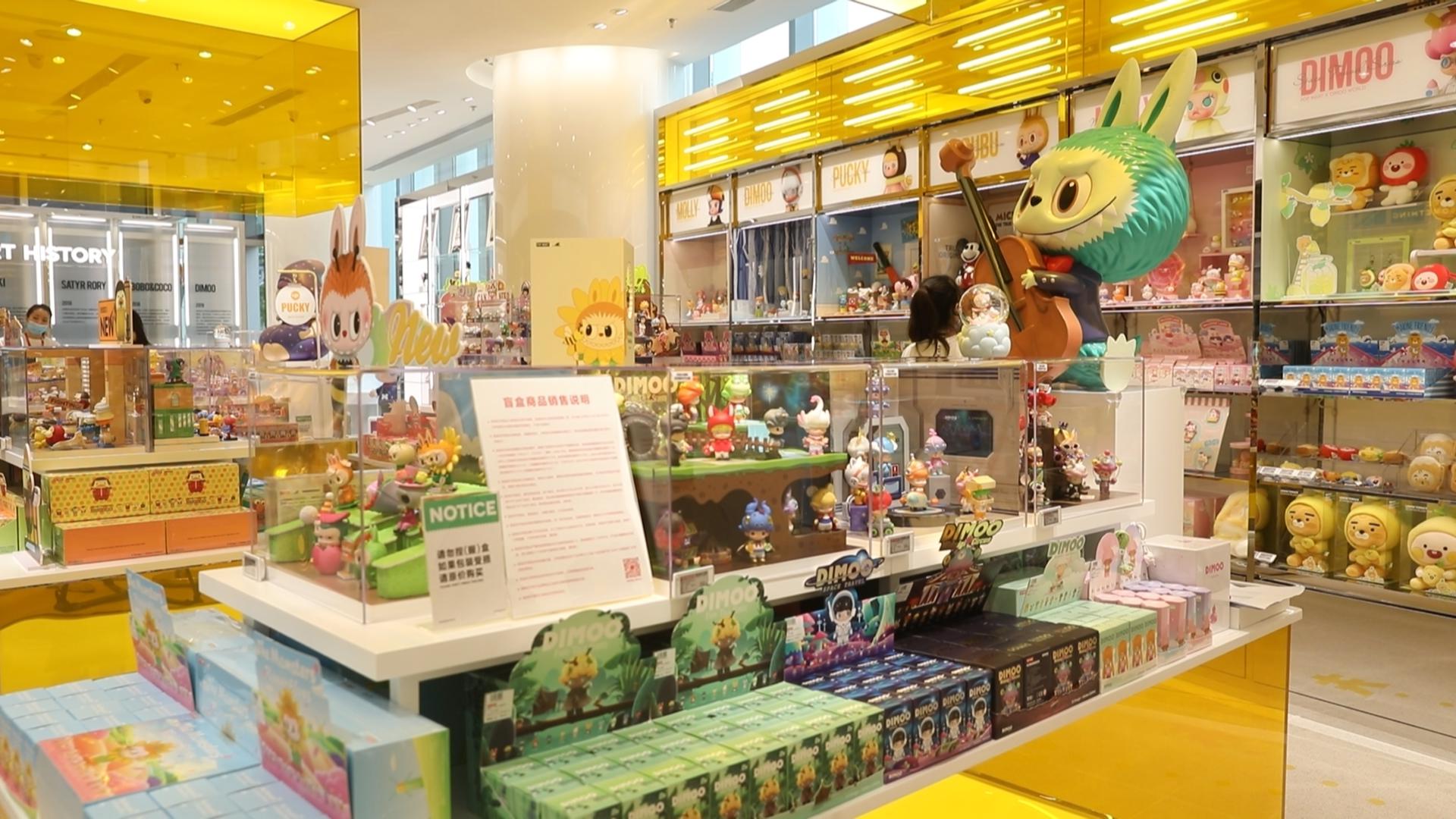
A POP MART toy shop in Beijing. /CGTN
A POP MART toy shop in Beijing. /CGTN
I visited another toy company, 52TOYS, smaller in comparison to POP MART but equally valuing IP development. Chen Wei, chairman and CEO of Beijing Talent Joy Cultural Development Co., Ltd, showed me how to transform a 5 x 5 centimeter box into an eagle. It was tricky and fun. This eagle, along with a number of wild animals or prehistoric creatures forms the BeastBox series that his company created and developed. They may not be big in size, but Chen Wei certainly has great expectations for them. "Maybe they can become something big, like the Transformers" said Chen Wei, "We're working with science fiction writers and Japanese manga authors to create stories for this IP, enrich it and extend its lifeline."
As for the key to sustain an IP, Chen Wei says it's creativity; they have to go beyond expectations to impress consumers.
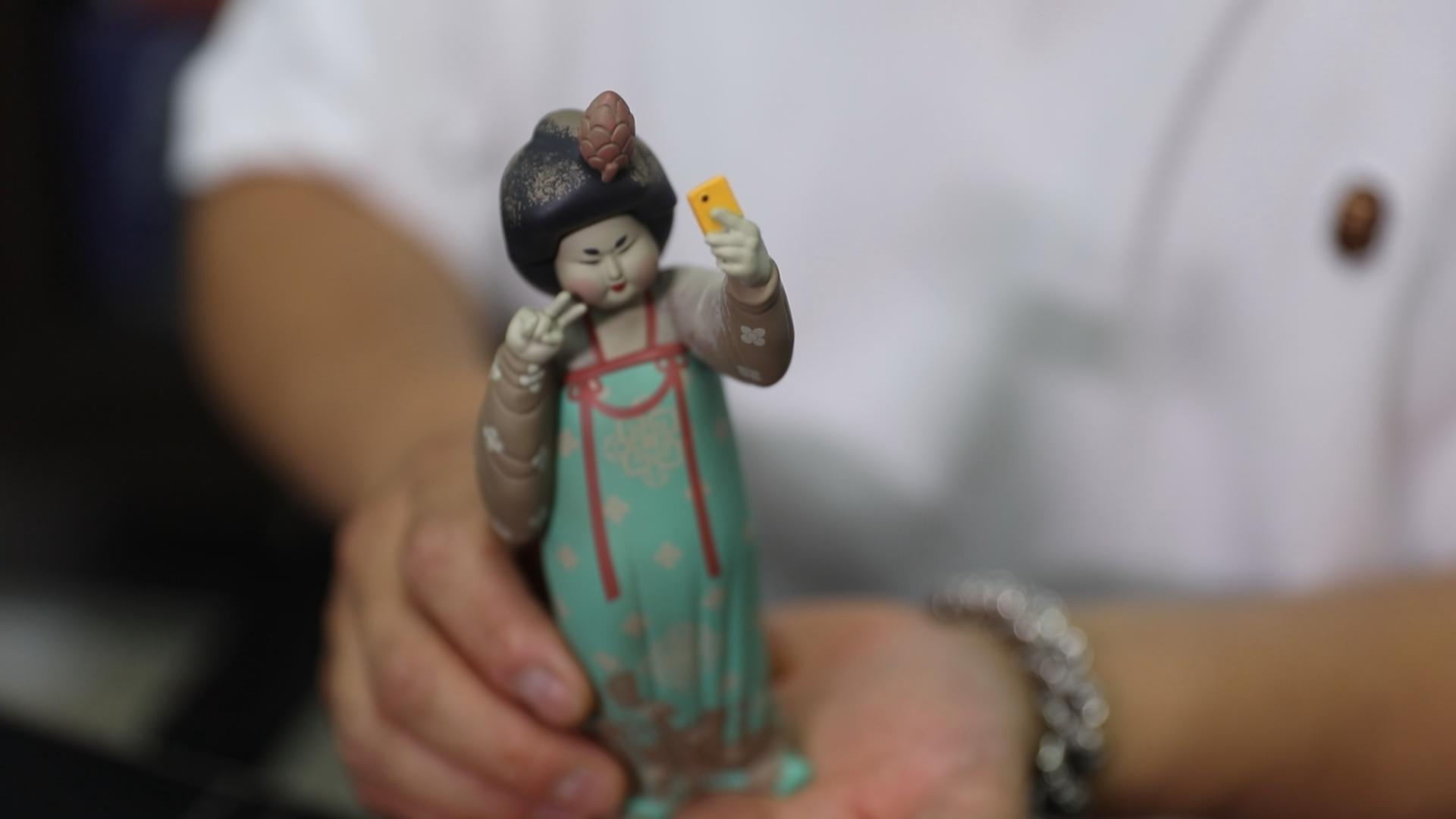
A sculpture of a Tang Dynasty lady taking a selfie from 52TOYS. /CGTN
A sculpture of a Tang Dynasty lady taking a selfie from 52TOYS. /CGTN
For big foreign companies who have been in the field for decades, like Japan's Bandai Namco, they need to pay double efforts: Brewing new super IP and, on the other hand, maintaining the vitality of its classic IPs, ones that a generation grew up with.
Daisuke Yamada, director of Bandai Namco (China) believes the key lies in how much the producers love the IP. "Not for one day or one year, but five years, ten years, and how the creators can continue to enrich this IP with good stories."
But some other companies do not think "story-support-IP" is necessary. Kemeworks produces mini-series and full blown sculptures, something inbetween art and toys. Their signature series, White Night Fairytales, can easily click with young female consumers.
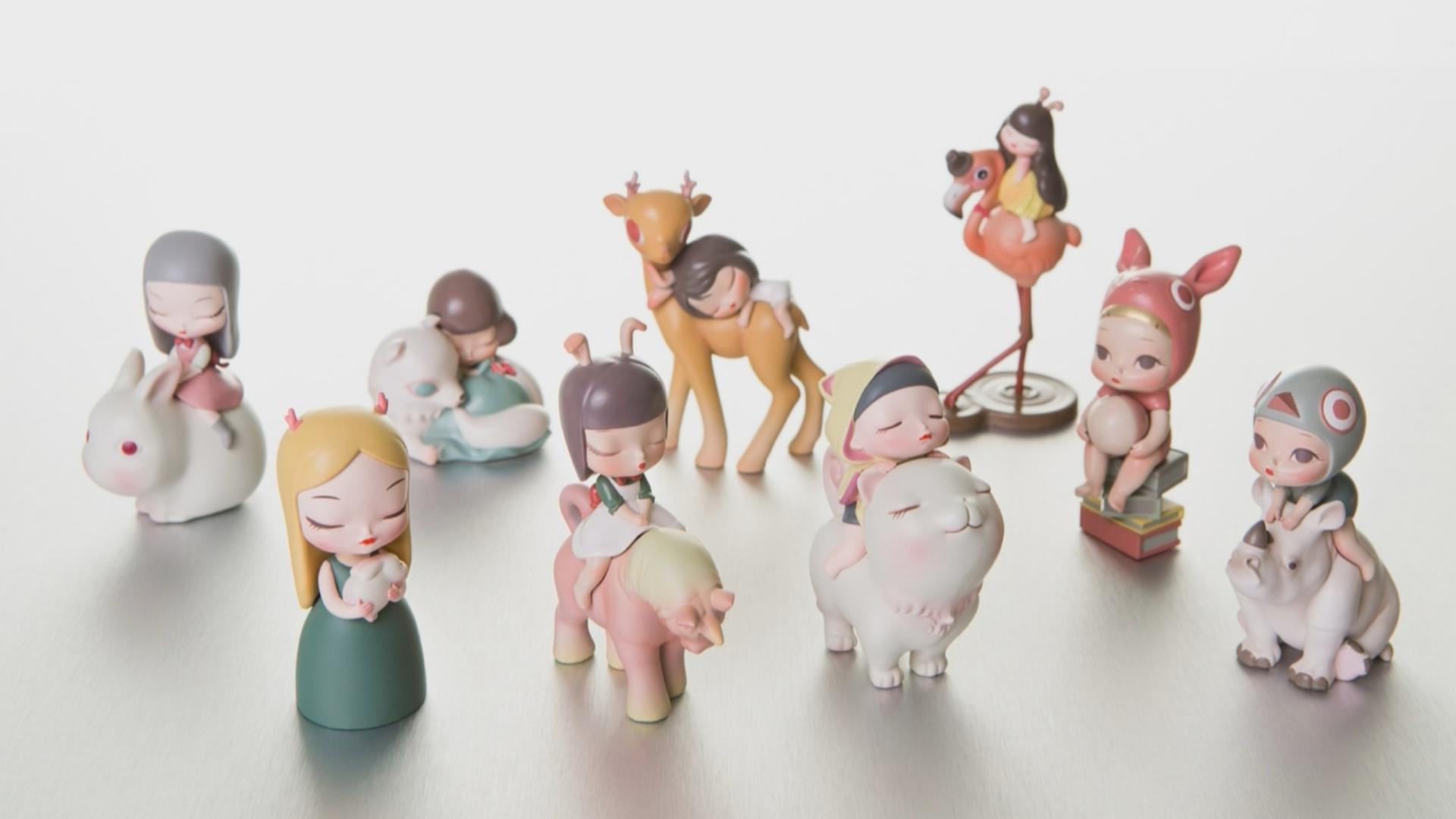
Mini sculptures from Kemeworks. /CGTN
Mini sculptures from Kemeworks. /CGTN
"We don't plan to create stories to support IP, because everyone has his or her own interpretation for a piece of art. We leave it blank for our consumers to fill it up with their own imagination." said Jin Xin, CEO of Kemeworks.
03:19
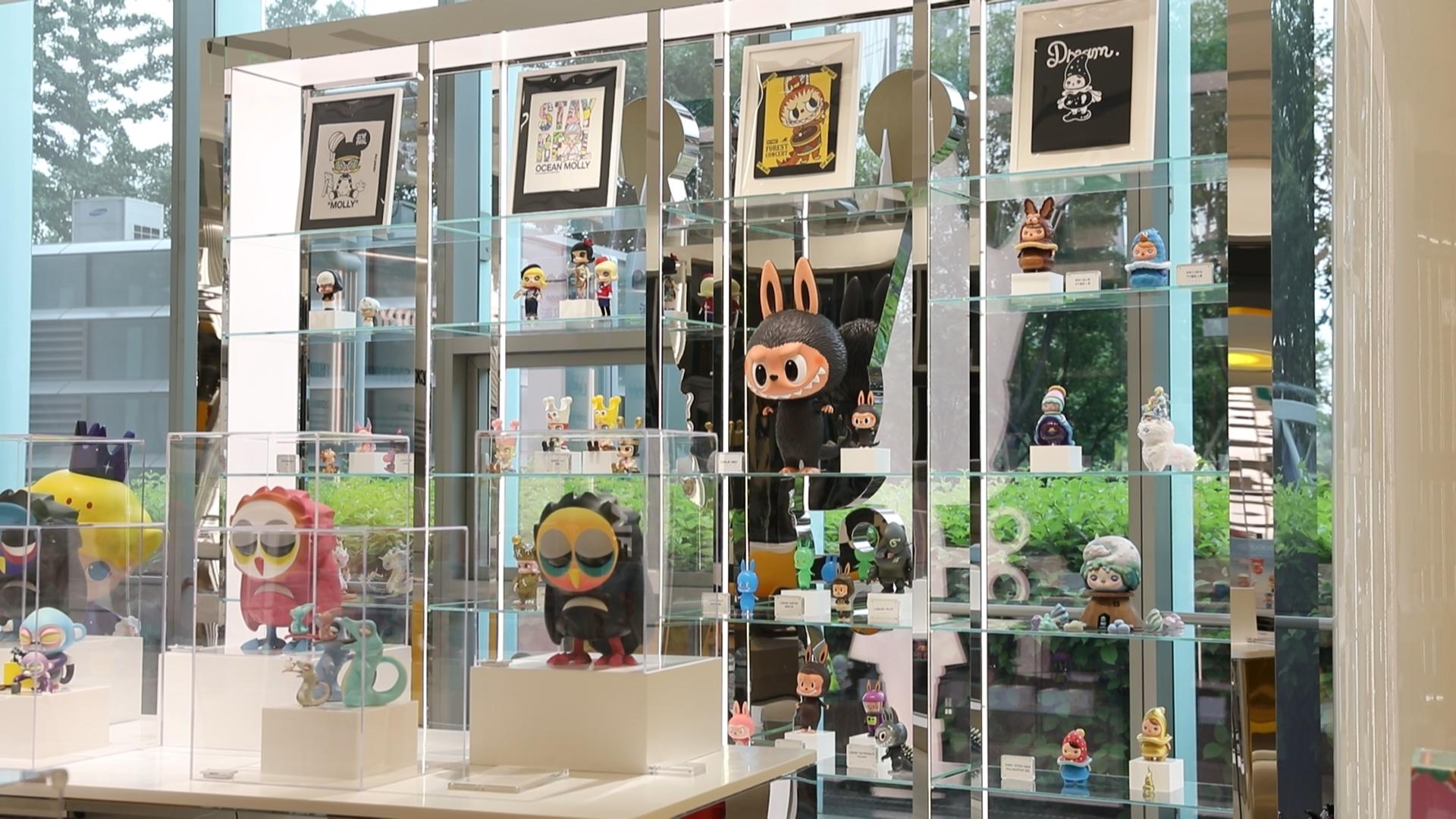
"IP is essentially human emotion," said David He, managing partner of BA Capital, when asked how he, as an investor, valued POP MART's upcoming IPO and the designer toy market in China. "If there is a Disney-style company in China in the future, it will look different because we are in different times, with different infrastructure."
As people's time becomes more fragmented, they may need something that can instantly bring out the child in their hearts. And a mini toy may just do it.